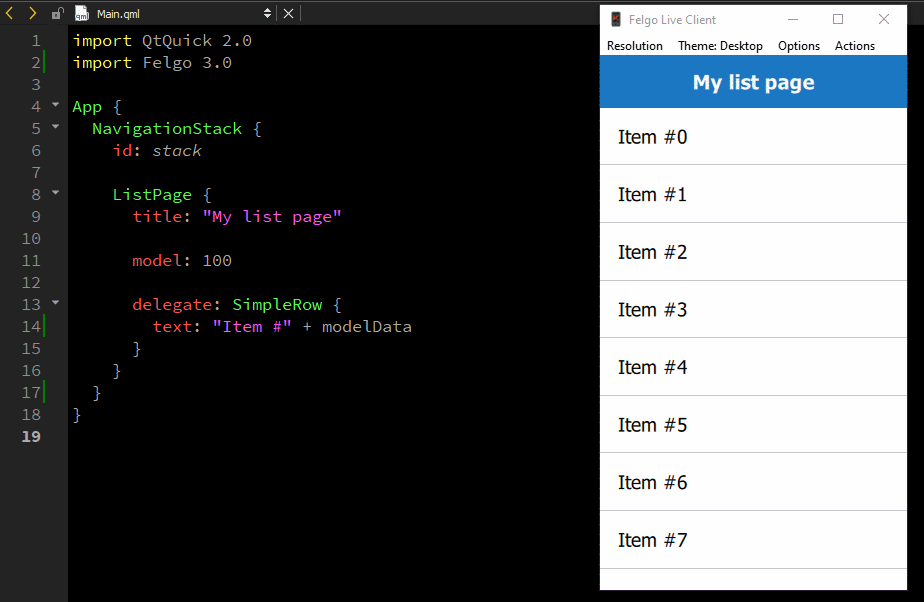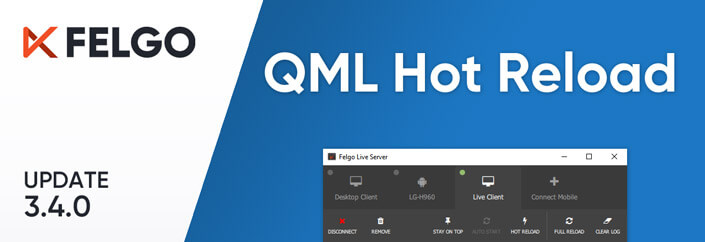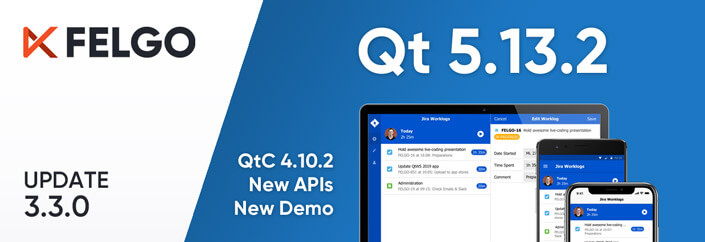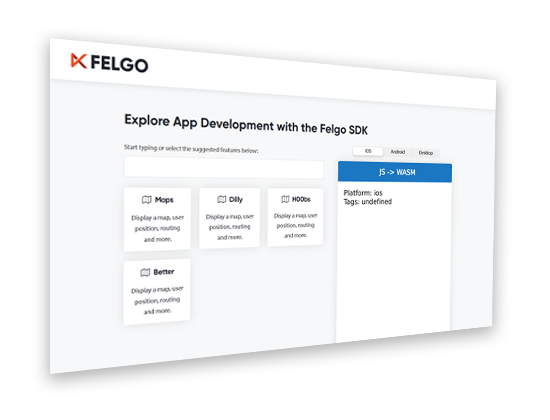Why is cross-platform app development so popular among app developers? In this article, you can find out what the main benefits of cross-platform app development are and how you can utilize them in your project.
What is Cross-Platform App Development?
For the end-user, “cross-platform” might mean “the app I’m using will run on any of my devices.”, but for Software Developers, this means languages and frameworks.
The concept took root in 1995 with WORA - Write Once, Run Anywhere -, a Sun Microsystems (think of Java) slogan. These were the early days and gave rise to an inside joke by developers, “Write Once, Debug Everywhere.” Things didn't quite go as planned, but it was a start.
While cross-platform development tools have increased in number & maturity, senior developers now have to choose the tool(s) best suited to their projects.

Say "Hello" to a Better Tool
What Makes Cross-Platform App Development Different From Others?
What exactly does cross-platform app development entail nowadays, you might ask? To help answer this question, let’s focus on mobile platforms like Android and iOS. For developers, if it’s not cross-platform, it’s native or hybrid app development.
Native apps are written for one specific platform, like Android or iOS, but not both. Producing a native app for both Android and iOS requires the development of two apps, support for two codebases, and two sets of teams.
Hybrid apps can be a messy blend of elements of web and mobile. On the other hand, cross-platform apps can be written once for both platforms. Since hybrid apps consist of standard web technologies such as HTML, CSS, JavaScript and are then wrapped in an embedded web-browser control, hybrid apps tend to be sluggish with limited functionality. As a result, hybrid apps may provide a poor user experience.
Very similar to hybrid is the progressive web app or PWA, which are basically just web applications that mimic a native look and feel. They lack features such as the ability to access the camera, sensors or other native features.
With cross-platform development, we get a single app that can work on both platforms. Cross-platform app development is a good choice when you need multi-platform functionality.
In general, with cross-platform in comparison to native you’ll get:
- support for different operating systems
- performance close, if not the same, as native
- cost-effective development
- larger market coverage at lower effort
- faster time to market

One Team. One Framework. One Codebase - Any Platform.
Benefits of Cross-Platform App Development
The Consumer Point of View - Happy Customers!
1. Use “the same” great app on any device
Many of us have multiple devices (phone, tablet, laptop computer, desktop computer, etc.) and not all of them have the same operating system or browser. What if we want to use an application on an iOS-based tablet while at home, switch to an Android phone on the go, and, once in the office, use an app on a desktop or browser? As a consumer, we want and expect a similar user interface (UI) and user experience (UX), while still following platform-specific characteristics. For consumer satisfaction, the solution of a single app that can run on multiple devices and has consistent UI components is a huge advantage.
The Businesses Entity’s Point of View - Lower Costs!
2. Support any platform
As a business, it might fall out of budget to have two different teams with two different sets of (native) development tools, one for each platform. Cross-platform app development helps developers to roll out new applications simultaneously easily: imagine one team of native developers for one platform being behind another team of native developers - a nightmare. With the right set of cross-platform tools in hand, they can have one team developing applications for all platforms.
3. Wider market reach
As a result of supporting any platform, products can be built and published for multiple app stores at the same time. Thus, products have a higher reach and greater chance of an increase in popularity.
4. Minimize upfront expenses
You cannot earn a cent from an app before it is released. Reducing the upfront cost reduces any risks taken. With cross-platform app development, it is much easier and faster to get an initial version ready and to see how it is perceived on the market.
5. Market analysis and tests

Measuring success, collecting data, and customer feedback as soon as possible are major requirements for all product companies. Once the data is collected, it gives information on what direction the app needs to head to be profitable and helps to secure the desired spot on the market. Cross-platform app development will help you reach this point much earlier by giving you the option to adjust early enough.
Let us help you bring your ideas to market!
The Developer’s Point of View - Develop Faster with Less Code & Error!
6. Write your source-code only once
For developers, writing good, reusable code is a best practice for any application but it’s a real bonus when this only has to be done once.
7. Reusable code across platforms
To be more efficient and increase productivity, it’s a great advantage that you can reuse the code while developing cross-platform apps. During the development phase, there are a lot of recurring, repetitive tasks and codes that can be avoided. As mentioned, the majority of the code is reusable and can be implemented once for all platforms.
8. Quick prototyping

Create Prototypes Faster Than Ever
Prototyping ensures that the product is on the right path and the idea is slowly coming to life. The quick development process makes prototyping simple and effective.
9. Development speed
Due to the exponential increase in competition and customer/user requirements, businesses are now forced to race with time while keeping up with the technology. This factor results in setting tight deadlines that put great pressure on the developing team.
Working with one set of code base, reusable features, plugins, and components speeds up the development process and reduces the time to market.
10. Easy product maintenance
This includes the inevitable “bug fixes” as well as improvements to the product. With cross-platform, we have only one codebase to focus on. This makes it easier and faster not only to test but to deploy fixes and upgrades.
11. Uniformity

Having just one codebase that compiles to multiple platforms is a huge advantage, in order to keep consistency in the design. Ensuring a consistent look & feel and similar operation (UI/UX) of the app across all platforms is a much more streamlined process.
Build Beautiful Cross-Platform Apps Today!
Mature Frameworks & Out-Of-The-Box SDKs
There are also some challenges, but the most typical is that the codebase, as there is only one, needs to take care of all platforms. This is where cross-platform SDKs come into play with the goal of handling platform-specific details, so the developer does not have to. Nowadays you can choose from a multitude of frameworks and SDKs. Felgo SDK, based on the Qt framework, is such a cross-platform app development kit.
Qt and Felgo Framework
Built on C++, Qt has quality features that allow for the creation of what developers are seeking; true cross-platform development across mobile, desktop & embedded apps, all with the same code. Qt provides a markup language, QML, that uses the Qt Quick module. The Qt Quick module is the standard library of types and functionality for QML. As a plus, Qt has built-in support for JavaScript. C++ has often been the go-to language for many applications and games.
With that being said, Qt is a strong, high quality, and highly sought-after cross-platform development solution.
With Felgo, you can not only access the features offered by Qt, but also add additional functionalities like APIs & libraries to your project.

QML Hot Reload with Felgo Live for Qt
Watch QML Hot Reload: the real-time revolution Webinar
To Wrap Up
Developing native apps for each platform can cause issues to the business entity and the development team. This eventually can result in issues for the user as well, if the quality of the product suffers. Native apps might work for some businesses, but with the user desiring the same app on multiple platforms, it comes at a very high cost.
Hybrid apps, although more cost-effective than native, often lack features and performance. Also when it comes to intuitive user interface & user experience, it can be hard to reach top quality.
With cross-platform app development, we get multi-platform support, the highest cost-effectiveness, larger market coverage and happier consumers. With the option to also deploy the same source-code to other platforms at a later point, it provides companies with a future proof option.
Relevant App Development Resources
More Posts Like This

Release 3.4.0: QML Hot Reload with Felgo Live

Release 3.3.0: Update to Qt 5.13.2 and Qt Creator 4.10.2, Jira Tima App Demo

.png)




